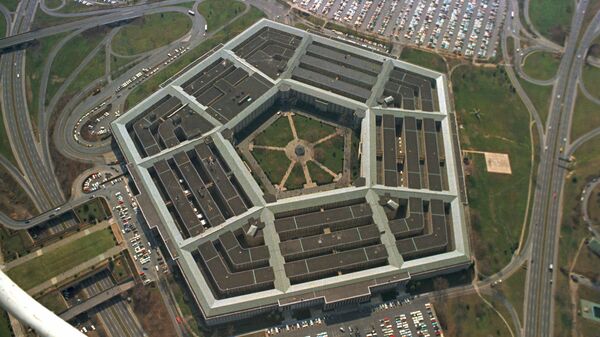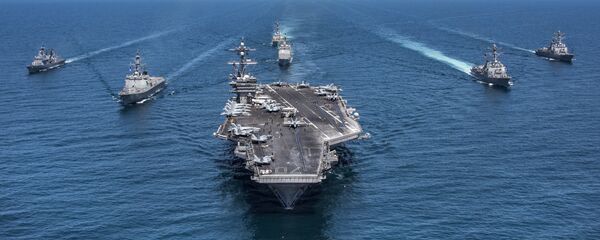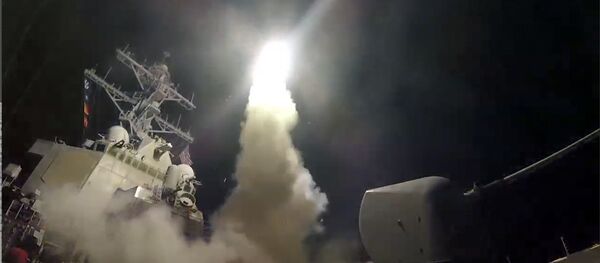On Friday, US Defense Secretary James Mattis while unveiling the 2018 US national defense strategy said the new doctrine emphasized that the United States will now focus on long-term competition with China and Russia.
CAVING TO MILITARY-INDUSTRIAL COMPLEX
On Monday, Chinese Foreign Ministry spokeswoman Hua Chunying said the Defense Department’s new strategy reflected a Cold War mentality and distorted facts about China’s diplomatic and defense policies.
University of Louvain philosopher and political commentator Jean Bricmont told Sputnik the new strategy revealed the limits to which Trump felt able to go in reducing US interventionist and militaristic policies.
"It was a welcome move by Trump to denounce the interventionist policies and the regime change operations of his opponents, but one could not expect too much from him, namely a policy that really rejects the demands of the military-industrial complex," he said.
"For that, we need a mission of a threat. Missions work for the idealist minded, threats for the supposedly pragmatist. For the latter, one has red scares, missile gaps… terrorism and the like," Bricoment said.
Since the 1980’s, partly as a result of the embarrassment of the US defeat in Vietnam, the justification for American wars had been idealist, that is based on defending human rights and the right to protect, Bricmont recalled.
"This justified the wars in Yugoslavia, Libya, and the arming of rebels in Syria," he said.
Since 9/11, the United States had also engaged in the so-called "war on terror," Bricmont continued.
Terrorism, however, had finally been defeated in Syria, at least for the time being and largely thanks to Russian help, and the last human rights intervention in Libya had led to the crisis of refugees. Therefore the United States needed a new justification for military spending, Bricmont observed.
"So, great power competition is back. Of course, since neither Russia nor China have the slightest intention of attacking the US on its soil, this justification is just as bogus as the previous ones," he said.
If Russia and China do not overreact by launching their own arms race, this increase of US military spending will further weaken the US economy and strengthen its supposed competitors, Bricmont predicted.
"The basic [US] policies are always the same, only the ideological justification changes," he concluded.
IMPERIALIST TRADITION
University of Illinois Professor of International Law Francis Boyle told Sputnik hat Trump’s new strategy document was set firmly in the tradition of US militarism and imperialism.
"This document is a further continuation and escalation of the US Strategy of Unlimited Imperialism," he said. "The Pentagon is planning to fight and ‘win’ World War 3 against Russia and/or China as well as to control, dominate, terrorize and intimidate the rest of the world under one pretext or another. "
President George W. Bush and his administration had sought to exploit the tragedy of the September 11, 2001 al-Qaeda terror attacks, Boyle recalled.
Since then, US administrations had also used the justifications, or excuses of claiming to try and eliminate weapons of mass destruction, promote democracy and self-styled humanitarian intervention to try and justify their power grabs around the world, Boyle stated.
"My teacher, mentor, and friend the late, great Professor Hans Morgenthau denominated ‘unlimited imperialism.’ The outstanding historic examples of unlimited imperialism… all have in common an urge toward expansion," he said.



